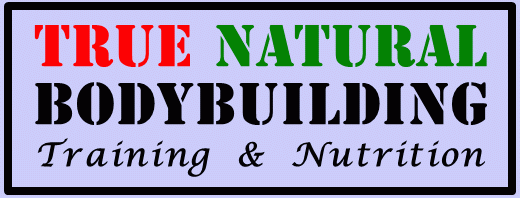Supplement Safety
If you take a sports supplement you not only want it to support or improve your performance, but you also want it to be safe. You don't want it to cause any short or long term negative side effects on your health and you certainly don't want to use any products that can cause cancer.
In contrast to the food and pharmaceutical industry, which are very strictly regulated by the national health authorities, the supplement industry is an open industry in which anybody can sell anything without having to demonstrate that the substance is effective in doing what is promised on the product label and that it is safe for the consumer. Pharmaceutical companies, on the other hand, spend on average more than 10 years and a billion dollars on lab, animal and human studies to prove that their medicines are effective and safe.
Having worked more than a decade in the pharmaceutical industry for the development of new medicines, I believe I have a well enough understanding to form an own opinion on the safety and risks of various substances that are frequently used in sports supplements.
Protein Powders
Let me discuss first the pure and unflavored milk, whey, casein and egg protein powders that are most popular among bodybuilders and sold by companies such as MyProtein (use the 5% discount code MP51244 during checkout) and Bodybuilding.com. These products are 100% natural, meaning that they contain no chemical additives. Since they are prudently extracted from fresh milk and eggs, there should be no safety concerns whatsoever.
(use the 5% discount code MP51244 during checkout)
Here I buy supplements myself. - Jos -
Creatine
Creatine is also a natural food component that is present in meat and fish. Although the supplement creatine monohydrate is chemically synthesized (extracting it from meat or fish would be too expensive), the synthesized molecule is identical to the one that naturally occurs is our food, with the only difference that one harmless water molecule is non-covalently bound to it.
Therefore I believe that 100% pure creatine monohydrate supplementation (at reasonable dosages) is as safe as eating meat and fish. Decades of creatine supplementation and many scientific studies (PubMed - Medline: medical literature) support this standpoint.
As with all chemically synthesized compounds, however, its purity is never 100% and some impurities, when ingested in too high quantities, can be potentially harmful. Therefore I advise you to only use the purest form of creatine monohydrate that you can find. My preference goes to Creapure, which is produced under GMP by a reliable German company AlzChem Trostberg and strictly quality controlled with a claimed purity of not less than 99.95%.
Artificial Sweeteners
Low-calorie artificial sweeteners such as aspartame, acesulfame-k, sucralose, saccharin and neotame, are often used to sweeten protein powders and beverages to avoid ingestion of large quantities of sugar. There exists some controversy about their safety, especially on the internet.
Fortunately these sugar substitutes are not only used in supplements, but also in the strictly regulated food industry. Therefore all of them have been very thoroughly studied and tested before they were approved by the world-wide national health authorities after a stringent review process.
Not only have all these chemical compounds been studied in dozens of well-designed animal studies before being allowed on the market, but many of them have already been used by hundreds of millions of people world-wide for several decades without causing any serious harm.
Yes, there are many claims against them (mainly due to nocebo responses), and there is even some sort of conspiracy theory traveling over the internet with the intention to get these products off the market. However, none of this can be taken seriously as it lacks any scientific basis.
Because of their successful massive use for many years and extensive testing, I believe that the world-wide approved artificial sweeteners are probably some of the safest chemical additives currently used in the food industry when used at quantities not exceeding the allowed limits. Some of them (e.g. sucralose and neotame) were even proven to remain stable under very high temperatures, allowing them to be used safely for cooking and baking. If you want to read more on this, please read reliable scientific sources such as Sugar Substitutes and Your Health written for the American Council on Science and Health.
Aromas and other Additives
Aromas and other additives are frequently used to improve the taste of sports supplements such as protein powders. Unfortunately I am not an expert in this field and there are just too many of them to be discussed here. Therefore, let me give some general tips.
- Limit their consumption. Add some fresh fruit (e.g. banana) to your unflavored protein shake to improve its taste.
- Choose for natural flavoring substances with a long and broad history of safe use in the food industry, such as cocoa and vanilla.
- If using chemical flavoring substances, stick to those that have been used safely for many years all over the world in many food products, such as the broadly used vanillin which is a chemically synthesized substitute for vanilla.
(use the 5 GBP discount code JV93469 during checkout)
Here I buy supplements myself. - Jos -
Other Supplement Components
Most so-called active compounds that are used in bodybuilding supplements to increase muscle growth, energy levels or fat loss, are not used in the food industry and do not occur in natural food products consumed in a normal healthy diet. This basically means that they do not belong in the human body and should be considered unsafe until the opposite is appropriately demonstrated.
Unfortunately the supplement industry in not much regulated and therefore no reliable studies are performed to ensure that all components used in sports supplements are safe for human use. Even substances from vegetable origin cannot be considered to be safe by default. In fact, many vegetable substances are known to be toxic, especially when derived from (exotic) plants that are not common in human diet.
Another source of safety concern, common to substances that are chemically synthesized, is the presence of synthesis impurities and degradation products that appear during long term storage, heating and wetting of the chemical compounds. In the pharmaceutical industry these are all very thoroughly studied for toxicity, including carcinogenic properties (their potential to cause cancer), and their quality is extremely strictly controlled by health authority audited systems. In the supplement industry, on the other hand, everybody trusts in god.
Conclusion
If you want to use sports supplements, read the list of ingredients very carefully and don't just swallow anything without knowing what it is. Unfortunately, in many countries, including the US I believe, there is no regulation that requires the supplement industry to mention all ingredients on the product label. Also, a well-known brand name is by no means a guarantee for safe products. If you are curious about which supplements you would find in my cabinet, take a look at my list of food supplements and training accessories.


